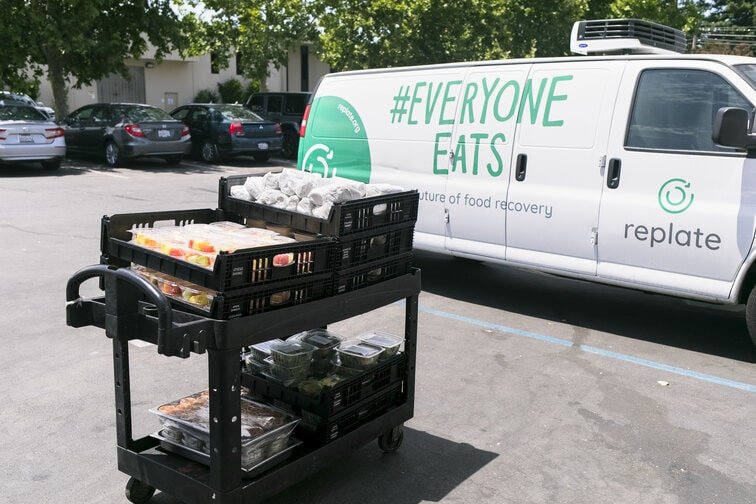SB1383 Compliance - Quick FAQ for Food Generators
Help! My business was just served an SB1383 compliance letter, but we don’t have enough surplus food to donate regularly. Can you still help us?
Replate can definitely still help out with that! You can sign up for a Replate Made-To-Order subscription plan - which can include as many, or as few pickups per month as you anticipate.
Once a commercial food generator has been served a notice to comply, CA SB 1383 requires that the generator ‘establish documented arrangements with food recovery services or organizations.’ If your business doesn’t regularly have surplus food to donate, and you’ve already signed up with a food recovery service, you are compliant!
Once a food donor has signed up for an account with us, if the need for food recovery does arise, Replate will be available to assist.
My business was just forced to comply, and we also have to pay to donate? Why?
It is crucial to note that when using a food recovery service, your business is not paying to donate food. Rather, you are paying for the actual service of food recovery. Most food recovery organizations are non-profit organizations that use paid drivers rather than volunteers, which is a significant operating cost. As a result, charging fees to recover food surplus presents a way for these nonprofits, like Replate, to recoup some operational spending.
Once a commercial edible food generator begins separating out and donating edible food surplus, they can actually begin to think about source reduction - producing less surplus and saving money in the process. Food generators that have successfully managed their surplus levels no longer have to worry about incurring several food-related costs - including the purchase and preparation of food, paying for frequent food recovery services (like Replate!), and waste disposal.
While SB1383 compliance does still require that the maximum amount of edible food surplus be donated, businesses with low or properly managed volumes of surplus will find themselves needing food recovery much less often.
Here at Replate, for example, we’ve worked with food generators who find themselves reducing their food surplus levels by up to 90% after just a year of service.
Who determines SB 1383 compliance? How will I know If I need to comply?
Compliance with SB 1383 is handled at the county level. If your county determines that your organization is classified as a commercial edible food generator, a formal notice to comply will be sent out. Below are some examples of both Tier 1 and Tier 2 food generators, as designated by CalRecycle:
What happens if my business fails to comply with SB 1383? Are there fines?
For ‘regulated entities’ (those who are subject to SB 1383), penalties for either noncompliance or violation(s) of SB 1383 regulations are tiered, starting at $50-100 for the first violation, and increasing from there.
Counties (jurisdictions) themselves may also be subject to penalties if they are found to violate SB 1383 regulations. For more information on penalties specifically, please consult CalRecycle’s enforcement FAQ or your local county website.
CA SB 1383 has the potential to make a significant impact in both the climate change and food insecurity spaces. When those businesses that have been designated as commercial edible food generators begin donating their edible food surplus, it will have two immediate impacts:
Reducing the amount of GHGs (greenhouse gas emissions) - especially ‘Short-lived climate pollutants’ in the atmosphere - these SLCPs, which are often produced from food waste, significantly accelerate the warming of the planet.
Helping to alleviate food insecurity for those who rely on non-profit services. Nearly all donations are given directly to nonprofit organizations that work with food-insecure populations; ensuring that these populations have access to nutritionally diverse and high-quality food.
In short, donating food and complying with California Senate Bill 1383 is about more than just paying fees or providing free meals - establishing relationships with food recovery organizations like Replate is a pledge to fight both hunger and climate change!
With 8 years of tech-enabled food recovery under our belt, Replate is proud to be a major contributor towards this state initiative. We are dedicated to continuing our mission of improving food access for nonprofit organizations and the populations that they serve.
The implementation of CA SB 1383 will allow us to spread our impact even further, and divert even more edible food surplus from landfills. We’re looking forward to seeing those 2030 target reduction goals hit, and perhaps even exceeded!
Did you miss Part 1 or Part 2 of this blog series? Check them out!
For more detailed information about SB 1383 regulations, visit the CalRecycle website or your local county website.
Learn more about SB 1383 here.


